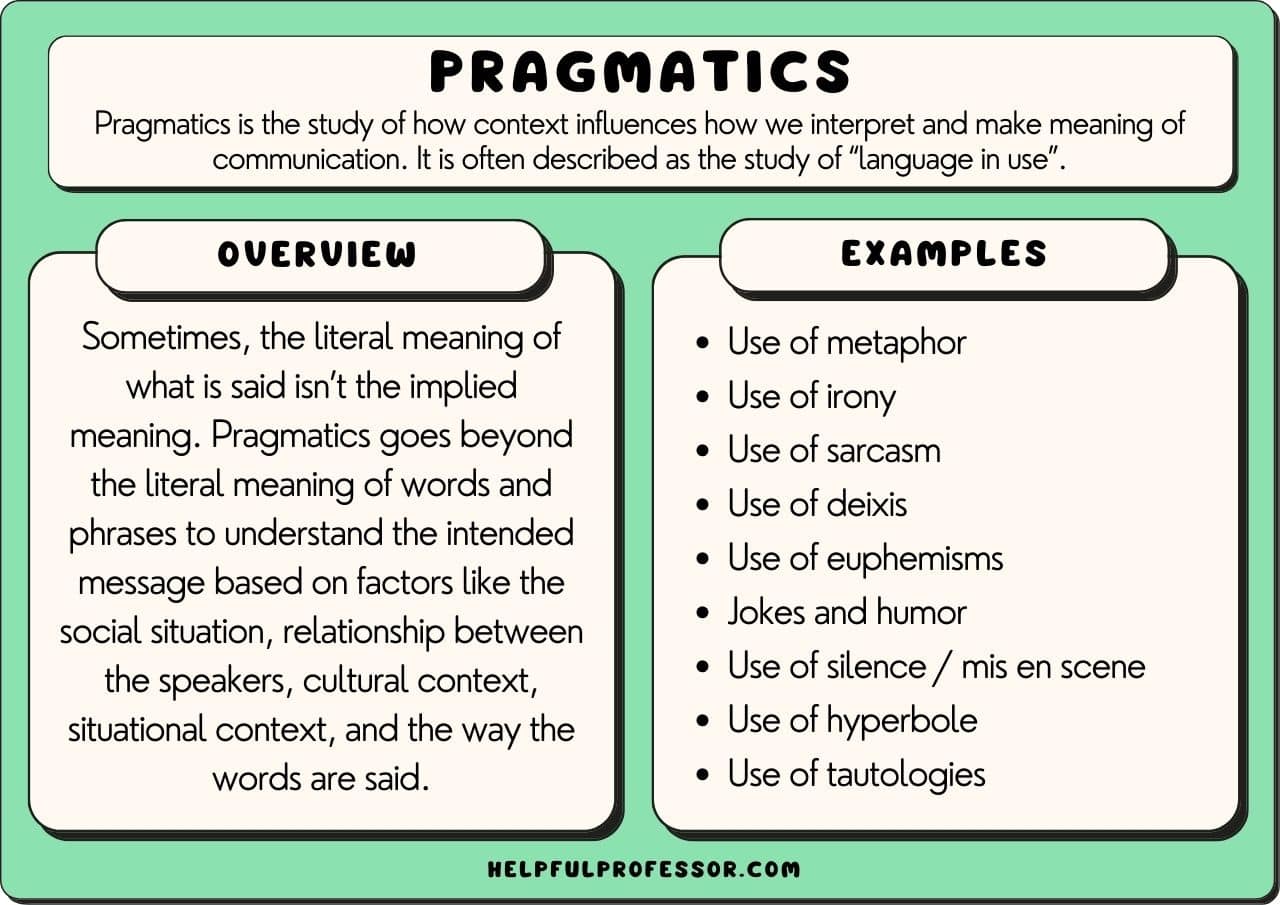
Time for a commercial break to drag a few more of you into my favorite science: Pragmatics.
Right now, this field gives me a massive edge in the AI agent market. It helps me build AI that actually works. And yet, the AI industry is still sleeping on it.
In 2-3 years, the applied AI world will catch up. They’ll stop saying “prompt engineering” and “context engineering.” They’ll start using the terms that have been studied for decades.
Simply put, pragmatics is the part of linguistics that studies how context shapes meaning. It explores the gap between what people say and what they actually mean.
You could call it the science of the “unwritten” rules of conversation we all use instinctively. It’s less about grammar and more about whether a statement is effective and appropriate in a specific situation.
The Core Ideas of Pragmatics
To put it simply: if semantics is the literal, dictionary meaning of words, pragmatics is the implied meaning, shaped by the situation.
Here are the key concepts:
-
Speech Acts: Every utterance isn’t just words; it’s an action. We assert, ask, command, promise, apologize. The phrase “It’s stuffy in here” isn’t just a statement of fact (semantics). It’s likely a polite request to open a window (pragmatics).
- Implicatures: This is what the speaker implies but doesn’t say directly. The listener figures it out from the context.
- Example:
- “Want to go to the movies?”
- “I have to get up early tomorrow.”
- Literal meaning: A statement about their sleep schedule.
- Implicature (what’s implied): “No, I’m not going to the movies.”
- Example:
- The Cooperative Principle: An idea from philosopher Paul Grice. He suggested that we subconsciously try to be understood in conversations. To do this, we follow four “maxims”:
- Maxim of Quantity: Say no more or less than needed.
- Maxim of Quality: Don’t say things you believe are false. (Sarcasm, by the way, is just a blatant violation of this one).
- Maxim of Relation: Stay on topic.
- Maxim of Manner: Be clear, brief, and unambiguous.
- Intentionally or accidentally breaking these maxims is what creates implicatures and sarcasm.
- Deixis: These are “pointing” words whose meaning depends entirely on the context: who is speaking, where, and when.
- Words like “I,” “you,” “here,” “there,” “now,” and “yesterday” are meaningless without knowing the situation. The phrase “Let’s meet here tomorrow” means something completely different depending on who says it, where, and when.
Why Does This Matter?
So why does this matter outside of a linguistics class? Because it’s the key to making technology, especially AI, actually understand us.
Modern AI, like the chatbots we all use, are essentially giant pragmatics engines. They’re constantly guessing our intent to generate useful responses, not just grammatically correct sentences. Without these principles, AI would be a lot less “intelligent” and a lot more frustrating.
Comments